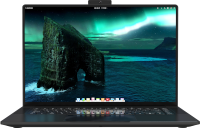1. OpenMediaVault (117)
OpenMediaVault is a Network-Attached Storage (NAS) solution based on Debian GNU/Linux. It contains services like SSH, (S)FTP, SMB/CIFS, DAAP media server, rsync, BitTorrent and many more. Thanks to a modular design it can be enhanced via plugins. OpenMediaVault is primarily designed to be used in home environments or small home offices, but is not limited to those scenarios. It is a simple and easy-to-use out-of-the-box solution that will allow everyone to install and administrate a Network-Attached Storage without deeper knowledge.
2. XigmaNAS (146)
XigmaNAS (formerly NAS4Free) is an embedded open-source NAS (Network-Attached Storage) distribution based on FreeBSD. XigmaNAS supports sharing across multiple operating systems, including Windows, Apple and UNIX-like systems. XigmaNAS is easy to set up in most home and enterprise environments and will allow to manage and share large amounts of data easily across a network. XigmaNAS also incorporates many different streaming features for sharing multimedia with other devices on the network. XigmaNAS includes ZFS v28 (RAIDZ, RAIDZ2 and RAIDZ3) Software RAID (0,1,5), Disk Encryption, S.M.A.R.T / Email Reports, and it supports the following protocols: CIFS (samba), FTP, NFS, TFTP, AFP, RSYNC, Unison, iSCSI (initiator and target), HAST, CARP, Bridge, UPnP, and BitTorrent. All are highly configurable by using a web interface.
3. EasyNAS (168)
EasyNAS is a storage management system for home or small office. It uses openSUSE Leap as a base with the Btrfs advanced file system. EasyNAS is managed through a web-based interface and offers such features as on-line growing of file systems, snapshots and copy-on-write.
4. FreeNAS (171)
FreeNAS is a tiny FreeBSD-based operating system which provides free Network-Attached Storage (NAS) services (CIFS, FTP and NFS).
5. Rockstor (212)
Rockstor is a specialist CentOS-based Linux distribution designed for Network Attached Storage (NAS) and private cloud storage solutions. It is based on popular open-source technologies, such as the Btrfs file system and Docker for automating the deployment of applications inside software containers. In addition to standard NAS features like file sharing via NFS, Samba, SFTP and AFP, advanced features such as online volume management, CoW Snapshots, asynchronous replication, compression, and bitrot protection are also supported. Rockstor provides additional applications, including ownCloud, Syncthing, OpenVPN and Plex. These applications (called "Rock-ons") are powered by a Docker-based application hosting framework. The Rockstor user interface, written in JavaScript, makes it simple to manage the server from within a web browser.
|
|
|
| Star Labs |
|---|

Star Labs - Laptops built for Linux.
View our range including the Star Lite, Star LabTop and more. Available with a choice of Ubuntu, Linux Mint or Zorin OS pre-installed with many more distributions supported. Visit Star Labs for information, to buy and get support.
|
|

